|
The Greens have made no secret of their disdain for the ambition of federal Labor’s climate policy. But on Wednesday, Greens leader Adam Bandt backed the government’s 43% emissions reduction cuts. Why?
The answer, Kate Crowley writes today, is politics. At this point in Australia’s climate policy trajectory, the Greens cannot be seen to knock back any reasonable attempt at progress. Doing so would risk the minor party being framed, again, as climate wreckers. Few observers can forget the Greens’ decision during the Rudd years to block Labor’s carbon pollution reduction scheme, citing holes in the plan. Rightly or wrongly, many Australians still consider the
decision a mistake that set back climate action for more than a decade.
As Michelle Grattan points out, Labor doesn’t actually need the Greens’ support to implement its policy. Most measures can be implemented without assent from parliament. But legislating the target would give green energy investors certainty, and send a clear message that Australia is back in the game on global climate action.
From all this, one thing is clear: Australia’s climate wars are far from over. The Greens see Labor’s bill as only the first salvo in getting climate action back on track after the Coalition’s go-slow years. The next flashpoint? Labor’s refusal to rule out new coal and gas projects. It’s going to be an interesting year.
|

|
Doug Hendrie
Deputy editor, Environment & Energy
|
|
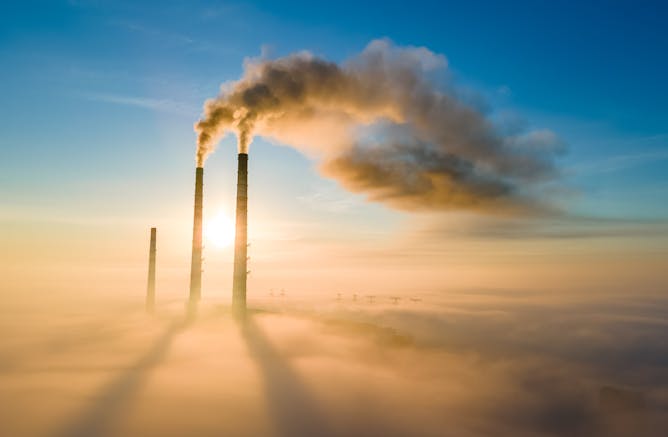
Kate Crowley, University of Tasmania
The Greens backed Labor’s moderate emissions cuts to avoid being seen as unwilling to compromise. But it’s only the start of a new wrestle over climate ambition.
|
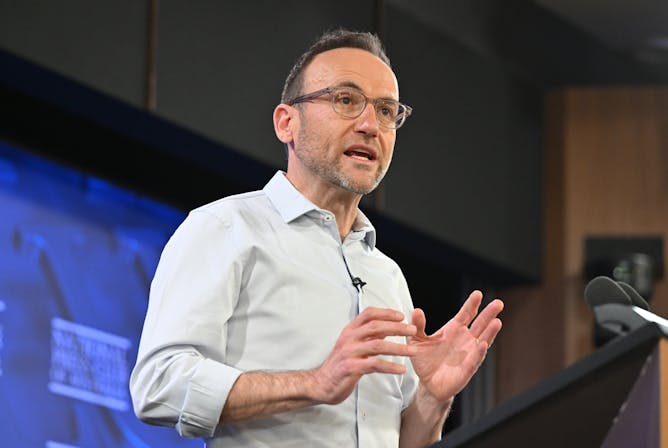
Michelle Grattan, University of Canberra
The government is now assured it will secure its legislation to enshrine its 43% 2030 emissions reduction target, after Greens leader Adam Bandt pledged his party would support it in both houses.
|
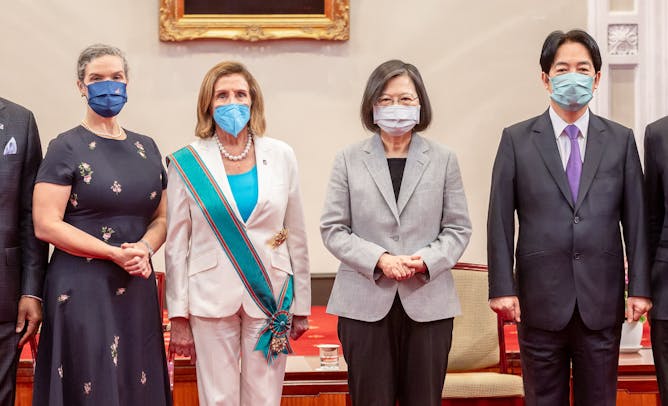
Tony Walker, La Trobe University
The US speak of the house’s visit to Taiwan has provoked more sabre-rattling from China, but neither China nor the US will want tensions to escalate further.
|

Haroro J. Ingram, George Washington University; Andrew Mines, George Washington University; Daniel Milton, United States Military Academy West Point
The US strike against al-Zawahri leaves the future of al-Qaida at a crossroads as the terrorist movement looks for a new leader.
|
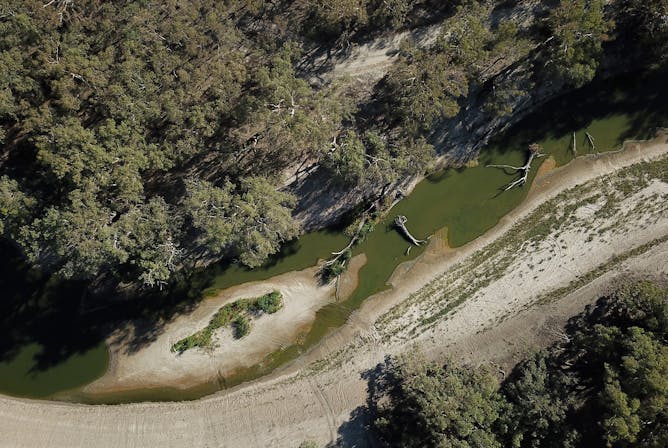
Richard Kingsford, UNSW Sydney
Federal Labor has pledged to deliver the Murray Darling Basin Plan. But a new report casts serious doubt on that promise.
|

Scott McAlister, The University of Melbourne; Alexandra Barratt, University of Sydney
If global health care was a country, it would be the world’s fifth largest emitter. There are simple ways health care can reduce its emissions, starting with scans and gases.
|

Tim Baker, Griffith University
The miracles of modern medicine can be life-saving. Yet as Tim Baker writes, cancer patients yearn for a little empathy from their doctors, as well as scripts.
|

Ben Phillips, Australian National University
ANU modeling suggests 80% of households face living cost increases below the inflation rate of 6.1%.
|
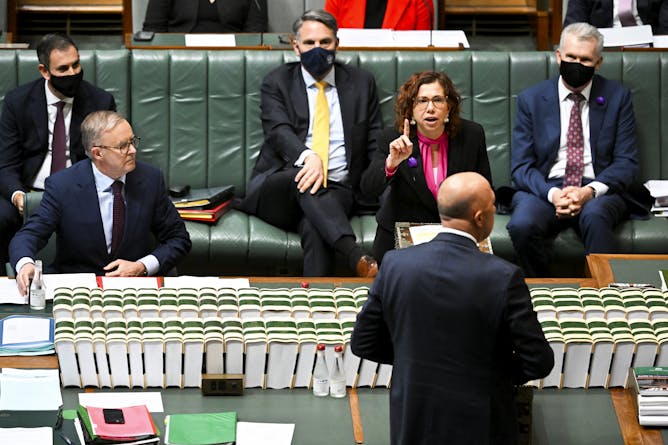
Elise Klein, Australian National University
By keeping the BasicsCard, the federal government seems not to have taken on board the lessons from the soon to be scrapped cashless debit card
|
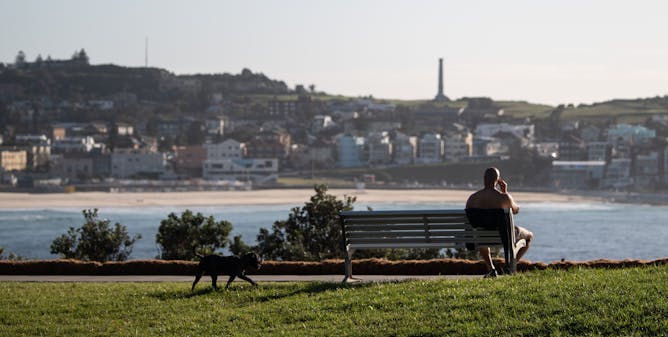
Michelle H Lim, Swinburne University of Technology
A white paper launched today reveals four actions governments, researchers and policymakers can take to combat loneliness.
|
Politics + Society
|
-
Justine Nolan, UNSW Sydney
Experts, and not those with deep pockets or connections, should be charged with making the decisions that affect us all
|
|
Health + Medicine
|
-
Alicia Dennis, The University of Melbourne
Epidurals deliver nerve-blocking drugs into the back for pain relief during labour and after surgeries. Epidural kits are currently in short supply, with their use prioritised for obstetric patients.
-
Neil Brewer, Flinders University
Problems identifying and responding to emotions in others is thought of as a core feature of autism. But our research shows there may be minimal differences in this aspect of social interaction.
|
|
Science + Technology
|
-
Simon KA Robson, CQUniversity Australia
A new map of more than 14,000 ant species around the world will guide efforts for discovery and conservation.
-
Fabian Zander, University of Southern Queensland
As far as we know, only one person has ever been directly struck by space debris. That was back in 1997.
-
Tony Blakely, The University of Melbourne
The first thing Australian medical research needs is more money. The second thing is making funding allocation less of a lottery.
|
|
Environment + Energy
|
-
Rebecca Clements, University of Sydney; Elizabeth Taylor, Monash University; Hulya Gilbert, La Trobe University
Seeing Japanese parents send toddlers out on their own to do errands has shocked viewers. But not that long ago our neighbourhoods were also child-friendly, and we can make them so again.
-
Sarah Pollard Williams, Charles Sturt University
I am a veterinarian with over 30 years experience. I believe this procedure must not continue, especially when safer alternatives are available.
-
Nick Bainton, The University of Queensland; Emilka Skrzypek, University of St Andrews
For centuries, Pacific Islands have been raided by mining interests with little to show for it. Harnessing their enormous green mineral wealth must be done justly.
|
|
Education
|
-
Anna Sullivan, University of South Australia; Barry Down, University of South Australia; Bruce Johnson, University of South Australia; Jamie Manolev, University of South Australia; Janean Robinson, University of South Australia; Neil Tippett, University of South Australia
As NSW overhauls its approach to suspensions, school discipline continues to be one of the most difficult issues in Australian schools.
|
|
Arts + Culture
|
-
Katie Pickles, University of Canterbury
The author of a new book exploring the making of heroines throughout history asks whether Barbie can ever overcome her reputation as the plastic antithesis of feminist ideals.
-
Joanna McIntyre, Swinburne University of Technology; Damien O'Meara, Swinburne University of Technology
Long before Drag Race, Carlotta was foundational in establishing a specifically Aussie mode of drag: outlandish, flamboyant, irreverent and ocker.
|
|
| |
|
|
|
Faculty of Society & Design, Bond University
Gold Coast QLD, Australia
•
PhD Scholarship
|

|
|
State Library of Queensland
Brisbane QLD, Australia
•
Casual
|

|
|
|
|
| |
| |

|
| |
| |
| |
Featured Events, Courses & Podcasts
|
View all
|
|
7 October 2021 - 7 October 2026
•
|

|
25 November 2021 - 25 November 2024
•
|

|
|
|

|
27 August - 26 November 2022
•
Brisbane
|

|
|
|
|
| |
| |
| |
| |
| |
|
|